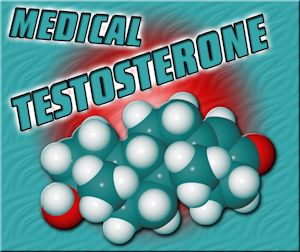Understanding Erectile Dysfunction
Erectile dysfunction (ED), commonly known as impotence, is a condition that affects many American men, often leading to significant distress and impacting quality of life. It is characterized by the consistent inability to achieve or maintain an erection sufficient for satisfactory sexual performance. While occasional difficulty with erections is not uncommon, persistent issues may indicate underlying health concerns that warrant attention.
Causes of Erectile Dysfunction
The etiology of ED is multifaceted, often involving a combination of physical and psychological factors. Physically, conditions such as diabetes, hypertension, cardiovascular disease, and obesity can contribute to the development of ED. These conditions can impair blood flow to the penis, which is essential for achieving an erection. Additionally, certain medications, hormonal imbalances, and neurological disorders may play a role.
Psychologically, stress, anxiety, depression, and relationship issues can also lead to ED. The interplay between mind and body is crucial; psychological stress can exacerbate physical conditions, creating a vicious cycle that can be challenging to break.
Diagnosis and Evaluation
A thorough evaluation by a healthcare provider is essential for diagnosing ED and identifying its underlying causes. This typically involves a detailed medical history, physical examination, and possibly blood tests to assess hormone levels and overall health. In some cases, specialized tests such as penile Doppler ultrasound may be used to evaluate blood flow.
Treatment Options
The management of ED is highly individualized, tailored to the specific needs and underlying causes identified in each patient. Here are some common treatment approaches:
Lifestyle Modifications
Adopting a healthier lifestyle can significantly improve erectile function. This includes regular physical activity, maintaining a healthy weight, quitting smoking, limiting alcohol consumption, and managing stress. Dietary changes, such as adopting a heart-healthy diet rich in fruits, vegetables, whole grains, and lean proteins, can also be beneficial.
Medications
Pharmacological treatments are often the first line of therapy for ED. Oral medications such as sildenafil (Viagra), tadalafil (Cialis), and vardenafil (Levitra) are widely used and effective for many men. These drugs work by enhancing the effects of nitric oxide, a chemical that relaxes smooth muscles in the penis, improving blood flow.
Therapies and Devices
For men who do not respond to oral medications, other options include vacuum erection devices, which create a vacuum around the penis to draw blood into the organ, and penile injections, which involve injecting a medication directly into the penis to induce an erection.
Psychological Counseling
Given the significant psychological component of ED, counseling or therapy can be invaluable. Cognitive-behavioral therapy (CBT) and sex therapy can help address underlying psychological issues, improve communication between partners, and reduce performance anxiety.
Surgical Interventions
In cases where other treatments fail, surgical options such as penile implants may be considered. These devices are surgically placed inside the penis and can be inflated to produce an erection.
The Importance of Partner Communication
Open communication with a partner is crucial in managing ED. Discussing feelings, concerns, and treatment options can strengthen the relationship and reduce the emotional burden of the condition. Partners can also play a supportive role in encouraging lifestyle changes and adherence to treatment plans.
Conclusion
Erectile dysfunction is a common yet treatable condition that affects many American men. By understanding its causes and exploring the various treatment options available, men can take proactive steps toward reclaiming their sexual health and overall well-being. Consulting with a healthcare provider is the first step in developing a personalized treatment plan that addresses both the physical and psychological aspects of ED. With the right approach, many men can successfully manage ED and enjoy a fulfilling sex life.
Contact Us Today For A Free Consultation

- Experiencing Erectile Dysfunction? Be on the Lookout for Signs of a Heart Attack [Last Updated On: February 27th, 2025] [Originally Added On: October 6th, 2021]
- Breaking Free: Mastering Male Potency and Conquering Erectile Dysfunction [Last Updated On: February 25th, 2025] [Originally Added On: February 25th, 2025]
- Defying Stigmas and Breaking Boundaries: Overcoming Erectile Dysfunction [Last Updated On: February 26th, 2025] [Originally Added On: February 26th, 2025]
- Unveiling the Enigma: Decoding the Chemical Pathways of Erectile Dysfunction [Last Updated On: February 27th, 2025] [Originally Added On: February 27th, 2025]
- A New Perspective: Thriving Beyond Erectile Dysfunction [Last Updated On: February 28th, 2025] [Originally Added On: February 28th, 2025]
- Dispelling Misunderstandings: A Comprehensive Look at Erectile Dysfunction [Last Updated On: February 28th, 2025] [Originally Added On: February 28th, 2025]
- The Unseen Dimension: Exploring the Psychological Aspects of Erectile Dysfunction [Last Updated On: March 1st, 2025] [Originally Added On: March 1st, 2025]
- Navigating the Journey: A Comprehensive Guide to Managing Erectile Dysfunction in American Males [Last Updated On: March 2nd, 2025] [Originally Added On: March 1st, 2025]
- Introduction Into Erectile Dysfunction Medicine [Last Updated On: March 2nd, 2025] [Originally Added On: March 2nd, 2025]
- Advancements in Modern Medical Interventions for Enhancing Libido and Sexual Health [Last Updated On: March 3rd, 2025] [Originally Added On: March 3rd, 2025]
- Understanding and Managing Erectile Dysfunction: Treatments and Causes [Last Updated On: March 4th, 2025] [Originally Added On: March 4th, 2025]
- Exploring the Emotional Impact of Erectile Dysfunction on Men and Relationships [Last Updated On: March 5th, 2025] [Originally Added On: March 5th, 2025]
- Understanding Erectile Dysfunction: Causes, Medications, and Impact on Quality of Life [Last Updated On: March 6th, 2025] [Originally Added On: March 6th, 2025]
- The Evolution of Erectile Dysfunction Treatments: From Ancient Remedies to Modern Medicine [Last Updated On: March 7th, 2025] [Originally Added On: March 7th, 2025]
- Revitalizing Intimacy: Strategies for Overcoming Erectile Dysfunction in American Males [Last Updated On: March 8th, 2025] [Originally Added On: March 8th, 2025]
- Revolutionizing Erectile Dysfunction Treatment: Innovations, Technologies, and Future Trends [Last Updated On: March 8th, 2025] [Originally Added On: March 8th, 2025]
- Lifestyle Changes to Combat Erectile Dysfunction in American Men [Last Updated On: March 9th, 2025] [Originally Added On: March 8th, 2025]
- The Critical Role of Blood Flow in Erectile Dysfunction: Vascular Health Insights [Last Updated On: March 9th, 2025] [Originally Added On: March 9th, 2025]
- Unveiling the Testosterone-Erectile Dysfunction Connection: A Comprehensive Insight for American Males [Last Updated On: March 12th, 2025] [Originally Added On: March 12th, 2025]
- Overcoming Erectile Dysfunction: Causes, Innovative Treatments, and Inspiring Recovery Stories [Last Updated On: March 13th, 2025] [Originally Added On: March 13th, 2025]
- Unveiling the Truth: Dispelling Myths About Erectile Dysfunction in American Men [Last Updated On: March 15th, 2025] [Originally Added On: March 15th, 2025]
- Exploring Alternative Therapies for Erectile Dysfunction in American Males [Last Updated On: March 19th, 2025] [Originally Added On: March 19th, 2025]
- Telemedicine Revolutionizes Erectile Dysfunction Care: Benefits, Challenges, and Future Prospects [Last Updated On: March 19th, 2025] [Originally Added On: March 19th, 2025]
- Boosting Libido and Combating ED: Diet and Exercise Strategies for American Males [Last Updated On: March 19th, 2025] [Originally Added On: March 19th, 2025]
- Managing Erectile Dysfunction: A Holistic Approach to Sexual Health and Wellness [Last Updated On: March 19th, 2025] [Originally Added On: March 19th, 2025]
- Stress, Sleep, and Erectile Dysfunction: Understanding the Interconnected Impact on Men's Sexual Health [Last Updated On: March 20th, 2025] [Originally Added On: March 20th, 2025]
- Global Approaches to Managing Erectile Dysfunction: Insights for American Men [Last Updated On: March 20th, 2025] [Originally Added On: March 20th, 2025]
- Erectile Dysfunction: Physiological Roots and Cultural Impacts on American Males [Last Updated On: March 20th, 2025] [Originally Added On: March 20th, 2025]
- Navigating Erectile Dysfunction: Communication, Causes, and Treatment for Couples [Last Updated On: March 21st, 2025] [Originally Added On: March 21st, 2025]
- Erectile Dysfunction: Understanding, Treating, and Overcoming Stigma in American Men [Last Updated On: March 21st, 2025] [Originally Added On: March 21st, 2025]
- Revolutionizing ED Therapy: Advances in Pharmacology, Technology, and Personalized Medicine [Last Updated On: March 21st, 2025] [Originally Added On: March 21st, 2025]
- Natural Remedies and Lifestyle Changes for Managing Erectile Dysfunction in American Men [Last Updated On: March 21st, 2025] [Originally Added On: March 21st, 2025]
- Erectile Dysfunction: A Critical Indicator of Cardiovascular Health in American Men [Last Updated On: March 21st, 2025] [Originally Added On: March 21st, 2025]
- Erectile Dysfunction and Blood Vessel Health: Insights for American Men [Last Updated On: March 22nd, 2025] [Originally Added On: March 22nd, 2025]
- Performance Anxiety and ED: Breaking the Cycle, Restoring Confidence [Last Updated On: March 22nd, 2025] [Originally Added On: March 22nd, 2025]
- Exploring Erectile Dysfunction: Treatments from Medications to Lifestyle Changes [Last Updated On: March 22nd, 2025] [Originally Added On: March 22nd, 2025]
- Erectile Dysfunction: Debunking Myths, Understanding Causes, and Exploring Treatment Options [Last Updated On: March 22nd, 2025] [Originally Added On: March 22nd, 2025]
- Celebrity Stories Break Silence on Erectile Dysfunction, Boost Awareness and Treatment [Last Updated On: March 23rd, 2025] [Originally Added On: March 23rd, 2025]
- Exercise: A Key Strategy for Managing Erectile Dysfunction in American Males [Last Updated On: March 23rd, 2025] [Originally Added On: March 23rd, 2025]
- Nerve Damage and Erectile Dysfunction: Causes, Diagnosis, and Treatment Options [Last Updated On: March 23rd, 2025] [Originally Added On: March 23rd, 2025]
- Erectile Dysfunction's Impact on Self-Esteem: Strategies for Recovery and Confidence [Last Updated On: March 23rd, 2025] [Originally Added On: March 23rd, 2025]
- Essential Nutrients for Enhancing Sexual Health and Combating Erectile Dysfunction [Last Updated On: March 23rd, 2025] [Originally Added On: March 23rd, 2025]
- Erectile Dysfunction: Treatment Costs, Insurance, and Economic Impact in the US [Last Updated On: March 23rd, 2025] [Originally Added On: March 23rd, 2025]
- Chronic Illness Impact on Sexual Health and ED Management in American Males [Last Updated On: March 23rd, 2025] [Originally Added On: March 23rd, 2025]
- Innovative ED Treatments: Stem Cells, Shockwave, Gene Therapy, and Holistic Approaches [Last Updated On: March 24th, 2025] [Originally Added On: March 24th, 2025]
- Counseling's Vital Role in Managing Erectile Dysfunction: A Holistic Approach [Last Updated On: March 24th, 2025] [Originally Added On: March 24th, 2025]
- Revolutionizing Erectile Dysfunction: Advanced Treatments Transform Men's Health and Well-being [Last Updated On: March 24th, 2025] [Originally Added On: March 24th, 2025]
- CBT: A Holistic Approach to Treating Erectile Dysfunction in American Men [Last Updated On: March 24th, 2025] [Originally Added On: March 24th, 2025]
- Managing Erectile Dysfunction: Holistic Approaches Beyond Medication for American Men [Last Updated On: March 24th, 2025] [Originally Added On: March 24th, 2025]
- Understanding Male Anatomy and Treating Erectile Dysfunction: A Comprehensive Guide [Last Updated On: March 24th, 2025] [Originally Added On: March 24th, 2025]
- Emerging ED Treatments: New Medications and Holistic Approaches Revolutionize Sexual Health [Last Updated On: March 24th, 2025] [Originally Added On: March 24th, 2025]
- Managing Erectile Dysfunction: Dos, Don'ts, and Comprehensive Strategies for American Males [Last Updated On: March 25th, 2025] [Originally Added On: March 25th, 2025]
- Wearable Technology Revolutionizes ED Management for American Males [Last Updated On: March 25th, 2025] [Originally Added On: March 25th, 2025]
- Erectile Dysfunction: Holistic Management and Emerging Therapies for American Males [Last Updated On: March 25th, 2025] [Originally Added On: March 25th, 2025]
- Navigating Erectile Dysfunction: Strengthening Relationships Through Communication and Support [Last Updated On: March 25th, 2025] [Originally Added On: March 25th, 2025]
- Restorative Sleep Enhances Erectile Function in American Males: A Comprehensive Guide [Last Updated On: March 26th, 2025] [Originally Added On: March 26th, 2025]
- Understanding Erections and Erectile Dysfunction in American Males: Physiology and Treatment [Last Updated On: March 26th, 2025] [Originally Added On: March 26th, 2025]
- Holistic Approaches to Overcome Erectile Dysfunction in American Males [Last Updated On: March 26th, 2025] [Originally Added On: March 26th, 2025]
- Personalized Medicine Revolutionizes ED Treatment for American Men [Last Updated On: March 26th, 2025] [Originally Added On: March 26th, 2025]
- Exploring the Link Between Erectile Dysfunction and Mental Health: A Comprehensive Guide [Last Updated On: March 27th, 2025] [Originally Added On: March 27th, 2025]
- Work Stress and Its Impact on Erectile Dysfunction in American Men [Last Updated On: March 27th, 2025] [Originally Added On: March 27th, 2025]
- Specialized ED Clinics Transform Lives with Holistic, Innovative Treatments [Last Updated On: March 27th, 2025] [Originally Added On: March 27th, 2025]
- Strategies to Overcome Performance Anxiety and Erectile Dysfunction in American Men [Last Updated On: March 27th, 2025] [Originally Added On: March 27th, 2025]
- Managing Erectile Dysfunction: Communication, Intimacy, and Medical Support for Couples [Last Updated On: March 27th, 2025] [Originally Added On: March 27th, 2025]
- Enhancing Sexual Health: Diet, Lifestyle, and Medical Strategies for American Males [Last Updated On: March 28th, 2025] [Originally Added On: March 28th, 2025]
- Herbal Remedies for Erectile Dysfunction: A Holistic Approach [Last Updated On: March 28th, 2025] [Originally Added On: March 28th, 2025]
- Navigating ED Consultations: A Comprehensive Guide for American Men [Last Updated On: March 28th, 2025] [Originally Added On: March 28th, 2025]
- Erectile Dysfunction: Holistic Management Strategies for American Men [Last Updated On: March 29th, 2025] [Originally Added On: March 29th, 2025]
- Physical Therapy: A Holistic Approach to Treating Erectile Dysfunction in American Males [Last Updated On: March 29th, 2025] [Originally Added On: March 29th, 2025]
- Navigating Erectile Dysfunction: Strategies for Couples to Rebuild Romance [Last Updated On: March 29th, 2025] [Originally Added On: March 29th, 2025]
- PDE5 Inhibitors: Revolutionizing Erectile Dysfunction Treatment for American Males [Last Updated On: March 30th, 2025] [Originally Added On: March 30th, 2025]
- Transforming Erectile Dysfunction into Deeper Intimacy and Connection [Last Updated On: April 1st, 2025] [Originally Added On: April 1st, 2025]
- Erectile Dysfunction and Prostate Health: Understanding the Vital Connection for American Men [Last Updated On: April 1st, 2025] [Originally Added On: April 1st, 2025]
- Managing Erectile Dysfunction: The Power of Positivity and Holistic Approaches [Last Updated On: April 1st, 2025] [Originally Added On: April 1st, 2025]
- Understanding and Overcoming Erectile Dysfunction: Causes, Treatments, and Breaking Stigma [Last Updated On: April 4th, 2025] [Originally Added On: April 4th, 2025]
- Navigating ED Treatment: Medication, Dosage, and Personalized Approaches for American Males [Last Updated On: April 5th, 2025] [Originally Added On: April 5th, 2025]
- Erectile Dysfunction: From Research to Real-World Solutions for American Men [Last Updated On: April 6th, 2025] [Originally Added On: April 6th, 2025]
- Genetic Factors Revolutionize Personalized ED Treatment for American Men [Last Updated On: April 7th, 2025] [Originally Added On: April 7th, 2025]
- Exercise Boosts Male Sexual Health: Combatting Erectile Dysfunction Effectively [Last Updated On: April 8th, 2025] [Originally Added On: April 8th, 2025]
- Innovations in ED Treatment: Nanotech, Wearables, Telemedicine, and Gene Therapy [Last Updated On: April 8th, 2025] [Originally Added On: April 8th, 2025]
Word Count: 593





















